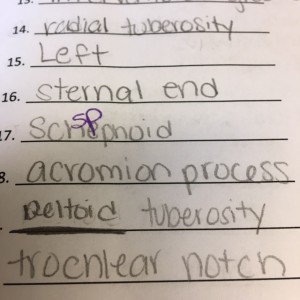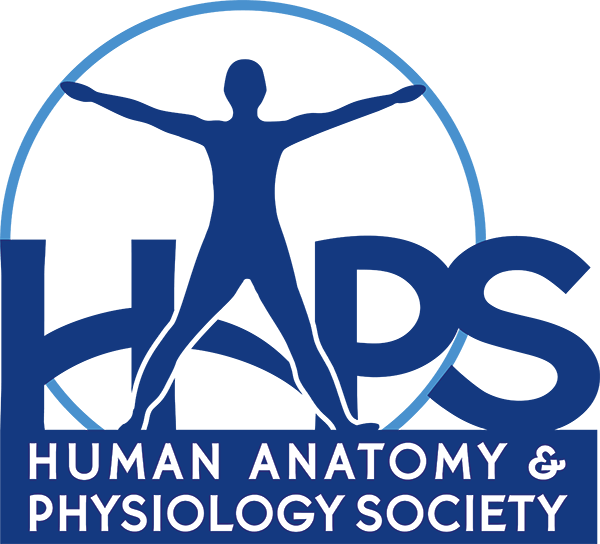
It’s always amazing to read the list serve posts that arrive in my email box throughout a term- and there seems to be a cycle to them. School starts, we talk about spelling and retention; the end of the term, and we share the interesting things students write on final exams. September was no different, as peers across the nation shared their emphasis on spelling vs student missing the concept correctly. Some posts suggested it was a lazy student that did not value spelling as a skill.
 I routinely point out in my class that if a doctor calls for test on the ilium, you want to make sure it isn’t the ileum. This inevitably seems to get some snickers. But this conversation brought me back to when I was a student and the life long struggle I have had with letters. To this day I misspell things, not because I don’t value it and trust me, it’s flat out embarrassing to ask your students if it “looks” right, but because my brain struggles with letters. Add a panic moment (much like a student on a lab practical) and all of a sudden I have vowels swirling in my head, almost jumping out of my brain at my eyes and spelling just gets difficult. I have moments where e and i, i and e seem to be revolving in my mind and I can’t pick which one comes first and which one comes second.
I routinely point out in my class that if a doctor calls for test on the ilium, you want to make sure it isn’t the ileum. This inevitably seems to get some snickers. But this conversation brought me back to when I was a student and the life long struggle I have had with letters. To this day I misspell things, not because I don’t value it and trust me, it’s flat out embarrassing to ask your students if it “looks” right, but because my brain struggles with letters. Add a panic moment (much like a student on a lab practical) and all of a sudden I have vowels swirling in my head, almost jumping out of my brain at my eyes and spelling just gets difficult. I have moments where e and i, i and e seem to be revolving in my mind and I can’t pick which one comes first and which one comes second.
 As we master our discipline and become experts in the field, the absurdity of misspelling a word becomes evident. We talk about sloppiness and if a student values spelling. But if we recall what it is like to be a student, to be learning what may amount to the equivalent of a foreign language that is medicine, toss in greek and latin roots, the fact that the study of English from childhood is not very similar to the study of Spanish in which conversations occur on the roots of words, and we are not just teaching the human body; we are teaching language. How many of us have attended a Ken Saladin’s language talk at a HAPS Annual Conference and discovered issues in our own pronunciations? In some cases, the student may be so overwhelmed with what they have to learn, that they prioritize spelling at the end (unless it means points).
As we master our discipline and become experts in the field, the absurdity of misspelling a word becomes evident. We talk about sloppiness and if a student values spelling. But if we recall what it is like to be a student, to be learning what may amount to the equivalent of a foreign language that is medicine, toss in greek and latin roots, the fact that the study of English from childhood is not very similar to the study of Spanish in which conversations occur on the roots of words, and we are not just teaching the human body; we are teaching language. How many of us have attended a Ken Saladin’s language talk at a HAPS Annual Conference and discovered issues in our own pronunciations? In some cases, the student may be so overwhelmed with what they have to learn, that they prioritize spelling at the end (unless it means points).
My class spends time on what a spelling error may be, versus a conceptual error. I hold them accountable for spelling and it equates to points missed. They are told they cannot use “fibia” or “tibula” and get credit because this shows a concept error vs a spelling error, and as I continue to wage my own personal battle with spelling, I support them in theirs and recognize that spelling for the novice student may be a bit more complicated than laziness.
